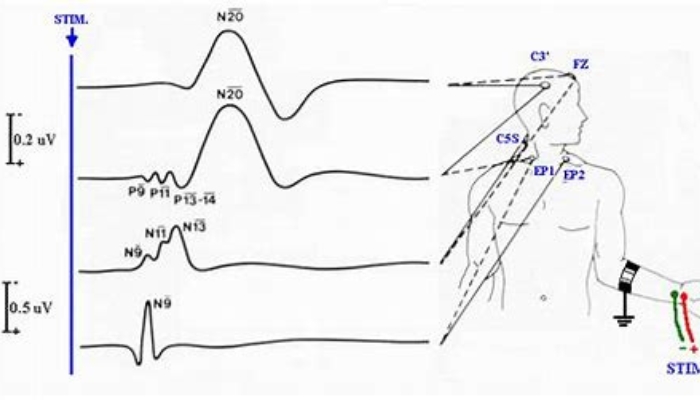SSEP Test in Miami-Dade & Broward
SSEP Test for Intraoperative Monitoring
Intraoperative somatosensory evoked potentials (SEPs) are used to assess the functional status of somatosensory pathways during surgical procedures and help protect patients’ neurological integrity of the sensory functions.

What Is an SSEP Test?
The Somatosensory Evoked Potential (SSEP) test is a non-invasive neurodiagnostic technique that monitors the electrical signals generated by the sensory pathways in response to stimuli. It is crucial in surgeries involving the spinal cord, brain, or peripheral nerves.
Why Intraoperative SSEP Monitoring Is Critical
During complex surgical procedures, especially spine or neuro surgeries, intraoperative SSEP testing helps surgeons:
Detect early signs of potential nerve damage
Adjust surgical techniques in real time
Improve patient outcomes and reduce postoperative complications
This is a vital service that adds a layer of safety and precision to high-risk operations.
Who Needs SSEP Testing?
Our mobile SSEP monitoring service is ideal for:
Hospitals performing spinal fusions, tumor resections, or vascular surgeries
Neurosurgeons seeking enhanced intraoperative data
Facilities requiring portable, expert-level neuro monitoring without the overhead
We come to you. Fully equipped. Fully certified. Fully reliable.
Don’t risk it. Book your SSEP test now and ensure your patients receive the best intraoperative care available.
Contact us today to schedule your SSEP somatosensory evoked potential test.
